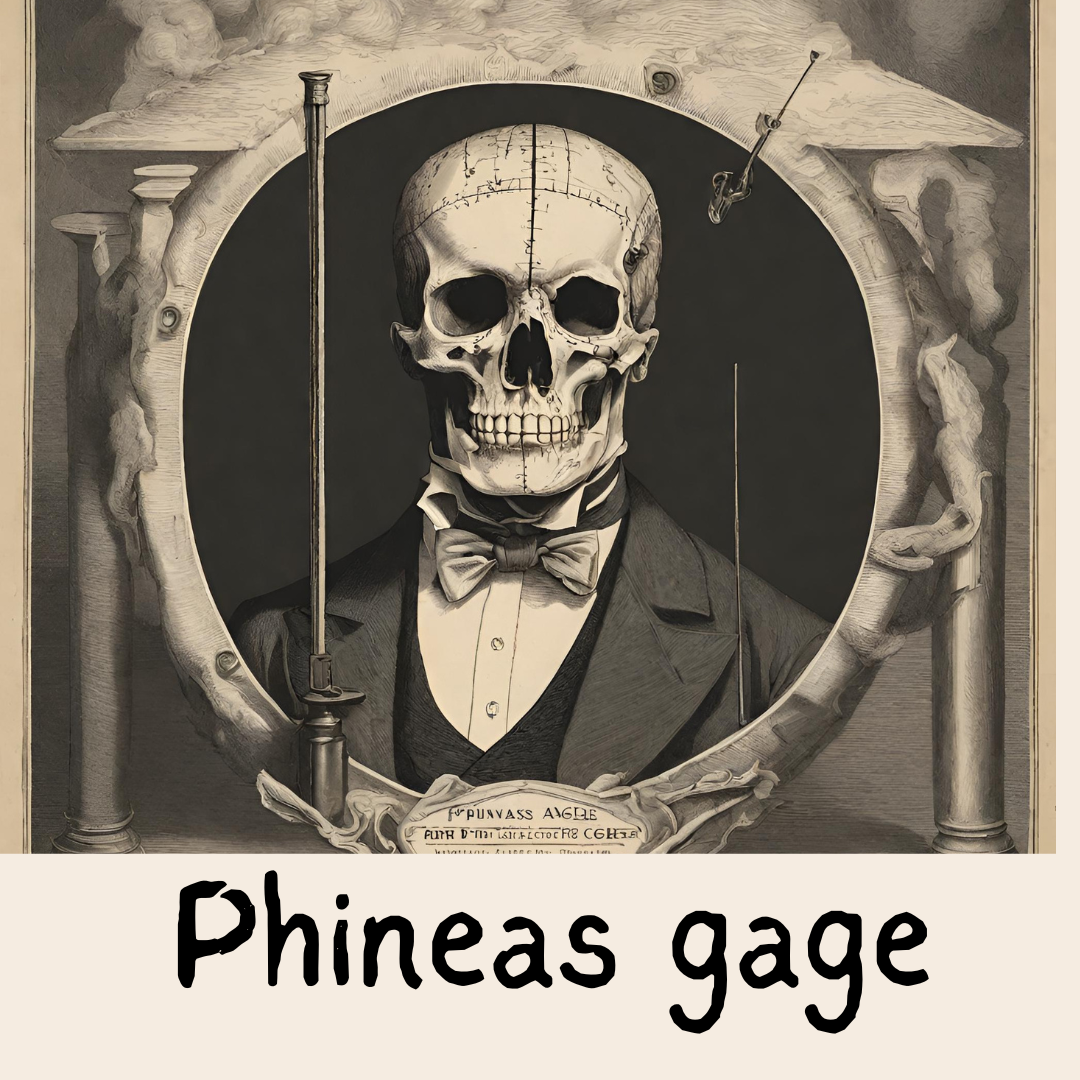Story of Phineas Gauge
Introduction:
The case of Phineas Gage is an extraordinary study in neuroscience that unequivocally demonstrates how brain damage can affect behaviour. Gage’s case provides irrefutable evidence that changes in brain structure can lead to substantial alterations in personality and behaviour.
Case Background:
Phineas Gage worked on a railroad and suffered a traumatic accident in 1848. A tamping iron penetrated his skull, causing significant damage to his frontal lobe. Although he survived the accident, his personality changed drastically, as reported by colleagues and physicians who knew him before and after the injury.
Behavioural Changes:
Before the accident, Gage was known as a responsible, hardworking, and reliable person. However, after the injury, he became impulsive, irritable, and socially inappropriate. These changes in his behaviour indicate a significant shift in his personality caused by the damage to his frontal lobe.
Neurological Implications:
The frontal lobe plays a vital role in executive functions such as impulse control, decision-making, and social behaviour regulation. Damage to this area can disrupt neural circuits responsible for these functions, leading to behavioural changes characteristic of antisocial and deviant behaviour.
Implications for Understanding Antisocial Behavior:
Phineas Gage’s case illustrates the incontrovertible link between brain damage and antisocial behaviour. Although not all individuals with frontal lobe injuries exhibit extreme changes like Gage, his case emphasizes the potential for neurological factors to contribute to antisocial tendencies.
Clinical and Societal Relevance:
Understanding the neurological underpinnings of antisocial behaviour has significant implications for clinical practice and societal interventions. It underscores the importance of considering brain injury and dysfunction in the assessment and treatment of individuals exhibiting antisocial and deviant behaviour.
Conclusion:
The case study of Phineas Gage plays a pivotal role in understanding the relationship between brain damage and antisocial behaviour. Explaining how frontal lobe injury can affect personality and social functioning amplifies the intricate interplay between neuroscience and human behaviour, offering invaluable insights for both research and practical applications in psychology and neurology.
Share this content:














2 comments